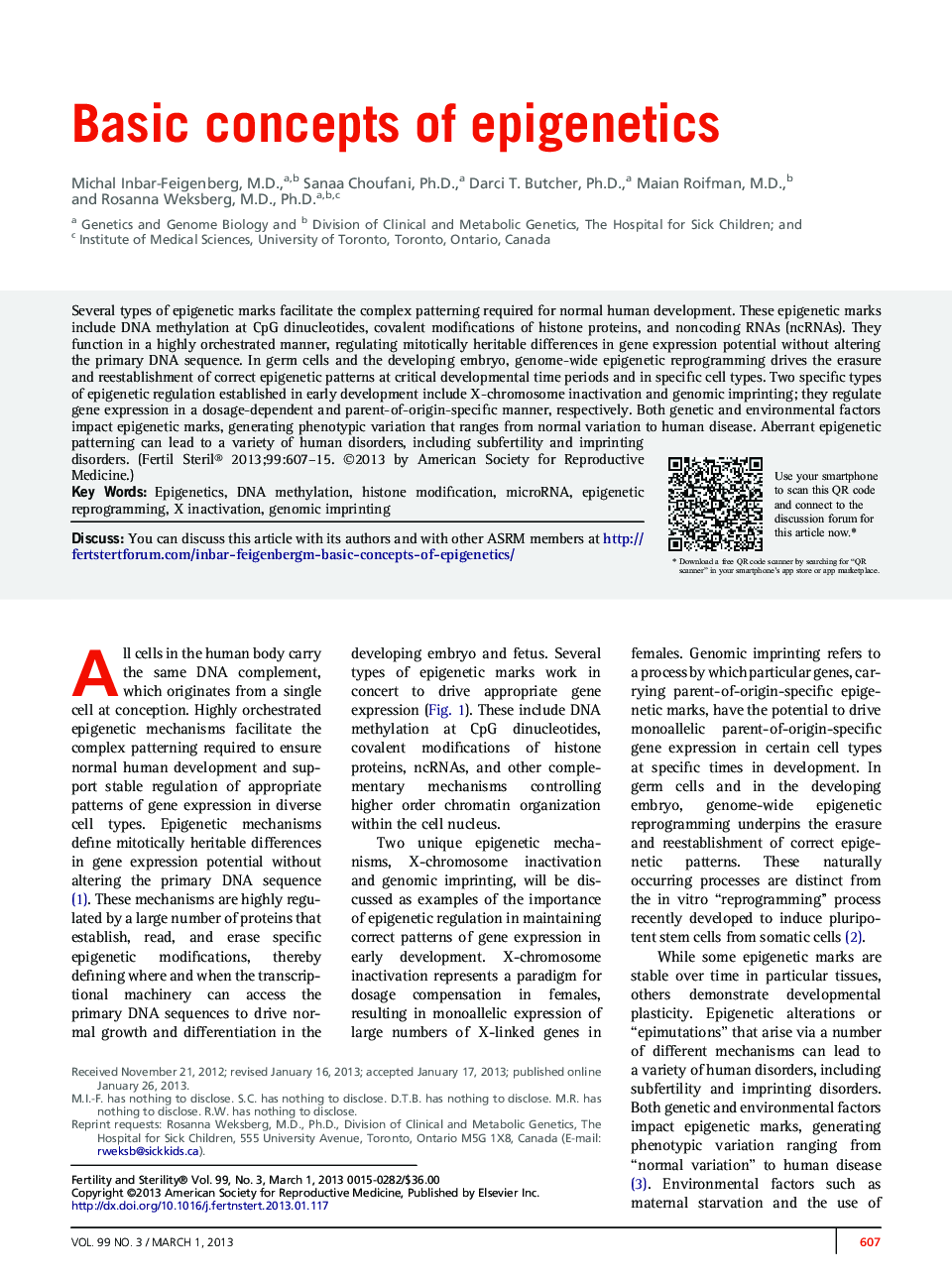| Article ID | Journal | Published Year | Pages | File Type |
|---|---|---|---|---|
| 3936776 | Fertility and Sterility | 2013 | 9 Pages |
Several types of epigenetic marks facilitate the complex patterning required for normal human development. These epigenetic marks include DNA methylation at CpG dinucleotides, covalent modifications of histone proteins, and noncoding RNAs (ncRNAs). They function in a highly orchestrated manner, regulating mitotically heritable differences in gene expression potential without altering the primary DNA sequence. In germ cells and the developing embryo, genome-wide epigenetic reprogramming drives the erasure and reestablishment of correct epigenetic patterns at critical developmental time periods and in specific cell types. Two specific types of epigenetic regulation established in early development include X-chromosome inactivation and genomic imprinting; they regulate gene expression in a dosage-dependent and parent-of-origin-specific manner, respectively. Both genetic and environmental factors impact epigenetic marks, generating phenotypic variation that ranges from normal variation to human disease. Aberrant epigenetic patterning can lead to a variety of human disorders, including subfertility and imprinting disorders.
